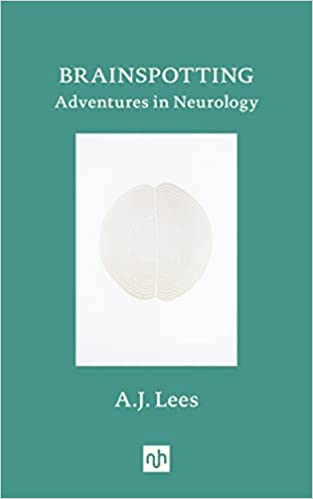In his new book, Brainspotting, Andrew Lees takes us through his life using a series of short chapters around key events which begins with his passion for bird spotting at the age of 12 – a skill which has lain at the centre of his neurological practice. This skill of observing, recognising and linking together clinical signs and elements of behaviour is key to being able to diagnose patients with neurological diseases as well as alerting one to conditions that have yet to be described! This is something that Andrew has done spectacularly well through an illustrious career in which he has described and discovered so much including therapies for which, in some instances, he was the first volunteer!! (see Mentored by a Madman: The William Burroughs Experiment). For many of us, Andrew has been an inspiring mentor and colleague with his wealth of knowledge and openness to explore and embrace new ideas while always being so personable. This I would say suffuses this delightful book – the relationships and companionship of being a neurologist, learning not just from those that came before you but also from those after you – ensuring that you never feel that you have reached a point where you cannot learn anything new. Linked to this, as one would expect, is his keen interest in medical history which is evident everywhere in this book as he describes and discusses the origin of many well-known neurological conditions and neurologists.
This book collects together 11 separate episodes spanning his career from times in training at medical school to fond reminiscences of the old Maida Vale hospital, which used to represent the northern border of the National Hospital for Neurology at Queen Square in much the same way as Chalfont defined its western reaches. Across these episodes, we meet doctors and neurologists that have inspired him through their diagnostic skills – and quite naturally Andrew worries that these powers of observation and deduction will be left on the pages of cases solved by Sherlock Holmes rather than in the outpatient clinic where the temptation to just order tests can sometimes get in the way of clinical acumen and insight. Further to this is the remarkable breadth of skills and interests that are on display in this book. Andrew not only shows us the fascination and sophistication of clinical neurology but explores the psychiatry and psychology that is so intimately linked to it. This even extends to neuropathology and the beauty that lies on the other side of the lens which also conjures up a history of that person in life who went on to develop such a disease. All of this led to Andrew setting up the brain bank in London near the National Hospital from which so many pioneering and defining studies have come.
This book I recommend to all with an interest in neurology and especially those that practice it. For those of us that were fortunate enough to be mentored and supported by Andrew, this book brings back many happy memories as well as new insights into this remarkable neurologist. The book is packed with advice and inspiration, all of which might explain why Andrew once sent me a patient when I was on call at the National with what he correctly diagnosed as having myasthenia gravis, based on the patient’s fatiguable ptosis at a dinner party he had been at the night before. For me, fatiguable ptosis at a dinner party relates to what has been consumed and the level of interest in my conversation, but for Andrew, it directed him to the neuromuscular junction. That is why Andrew is and continues to be, a remarkable neurologist, who also has that rare gift of being able to capture it in words and stories.
Read Angelika Zarkali’s review of Andrew Lee’s book ‘Brazil that never was’.
Watch our film of Mike Zandi in conversation with Andrew Lees, produced on the publication of his book ‘Mentored by a Madman.’

